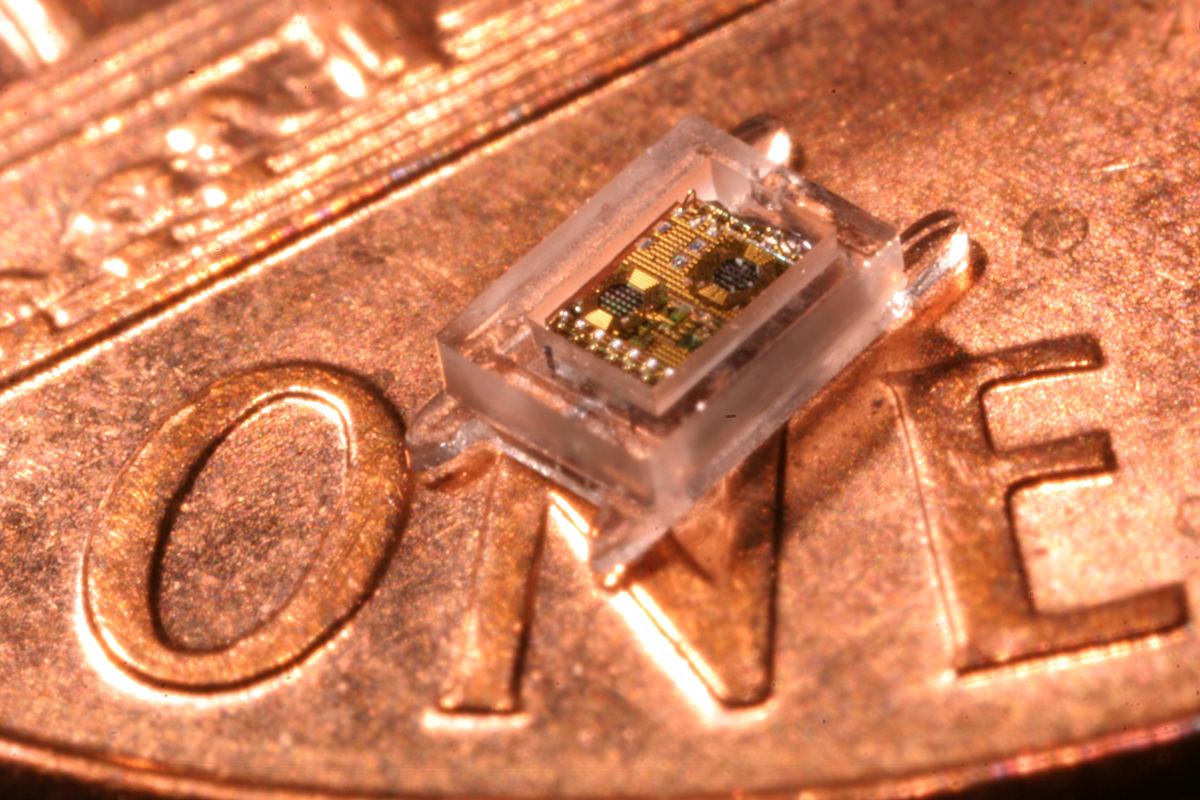
Sign up today and you will receive a free copy of our Future Focus 2025 report - the leading guidance on AI, cybersecurity and other IT challenges as per 700+ senior executives
You are now subscribed
Your newsletter sign-up was successful
University researchers have invented a prototype medical computer the size of a pen nib.
Boffins at the University of Michigan have created a computer just one cubic millimeter in size. Despite its tiny dimensions, the third-generation Phoenix computer contains a processor, pressure sensor, memory, an ultra-thin battery, a radio with antenna and even a solar charging system.
Phoenix is designed to track the progress of glaucoma, a degenerative eye condition that can ultimately lead to blindness, but potential future uses for the computer include measuring pollution and surveillance operations.
The radio can automatically tune itself when it connects to an external data collection computer, so it doesn't need to be manually tuned. According to the scientists, the processor needs just 5.3 nanowatts of power (compared to around 18 watts for the average netbook) so the battery can be recharged when exposed to 10 hours of indoor light a day or one and a half hours of sunlight.
Phoenix is still in the lab and isn't yet in commercial production, with details of the computer only released today at the International Solid-State Circuits Conference (ISSCC) in San Francisco.
Sign up today and you will receive a free copy of our Future Focus 2025 report - the leading guidance on AI, cybersecurity and other IT challenges as per 700+ senior executives
-
 ITPro Best of Show NAB 2026 awards now open for entries
ITPro Best of Show NAB 2026 awards now open for entriesThe awards are a fantastic opportunity for companies to stand out at one of the industry's most attended shows
-
 Mistral CEO Arthur Mensch thinks 50% of SaaS solutions could be supplanted by AI
Mistral CEO Arthur Mensch thinks 50% of SaaS solutions could be supplanted by AINews Mensch’s comments come amidst rising concerns about the impact of AI on traditional software